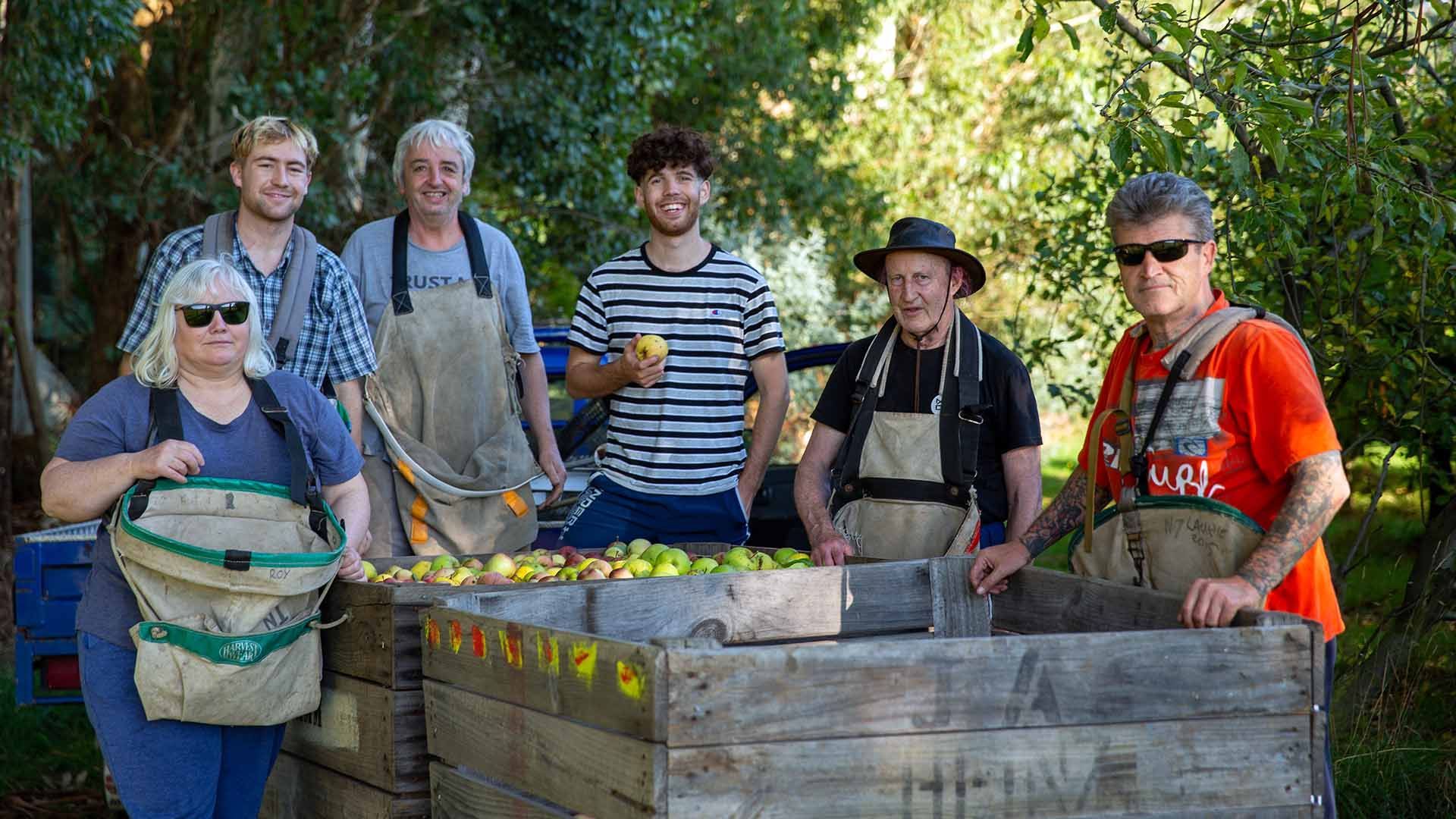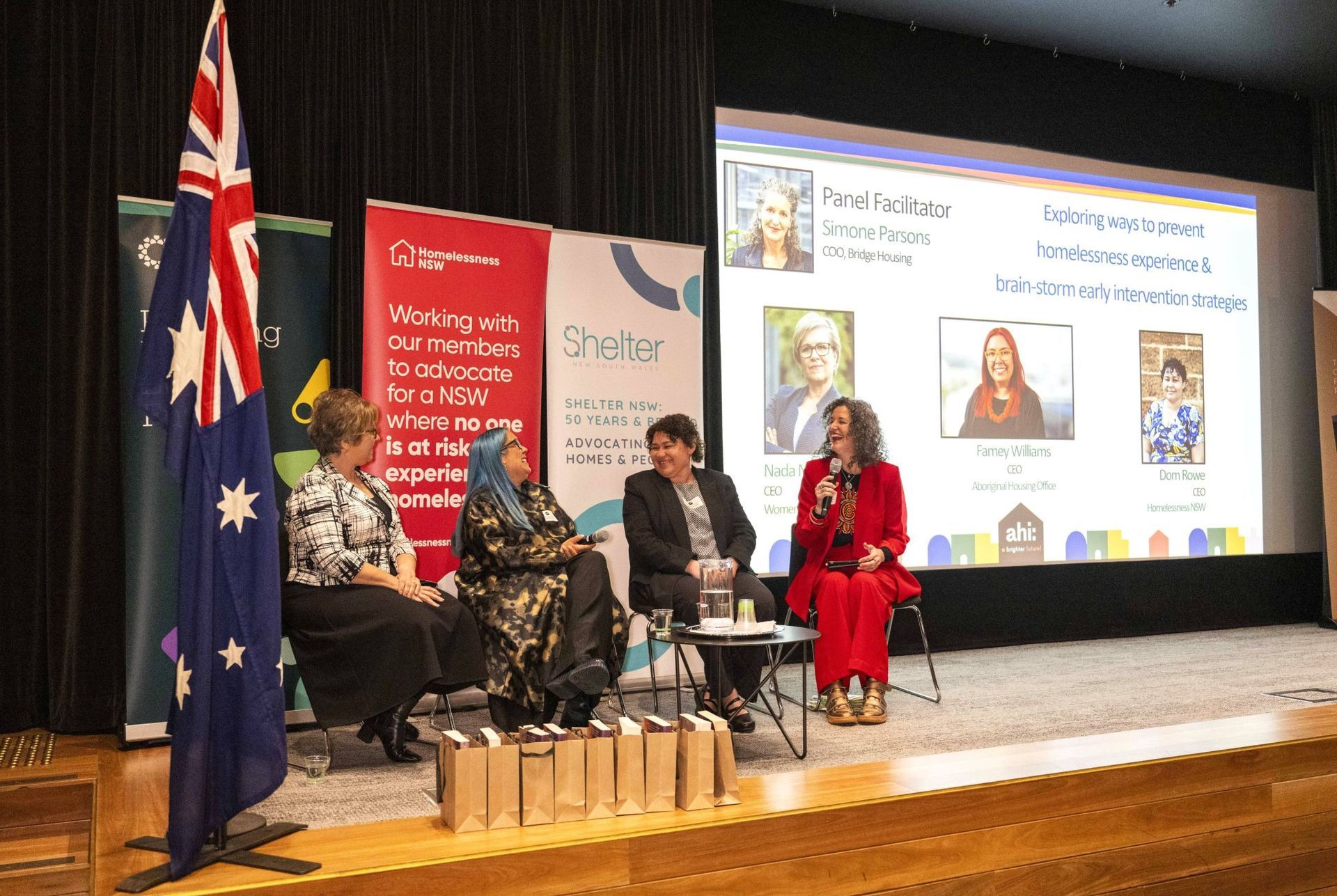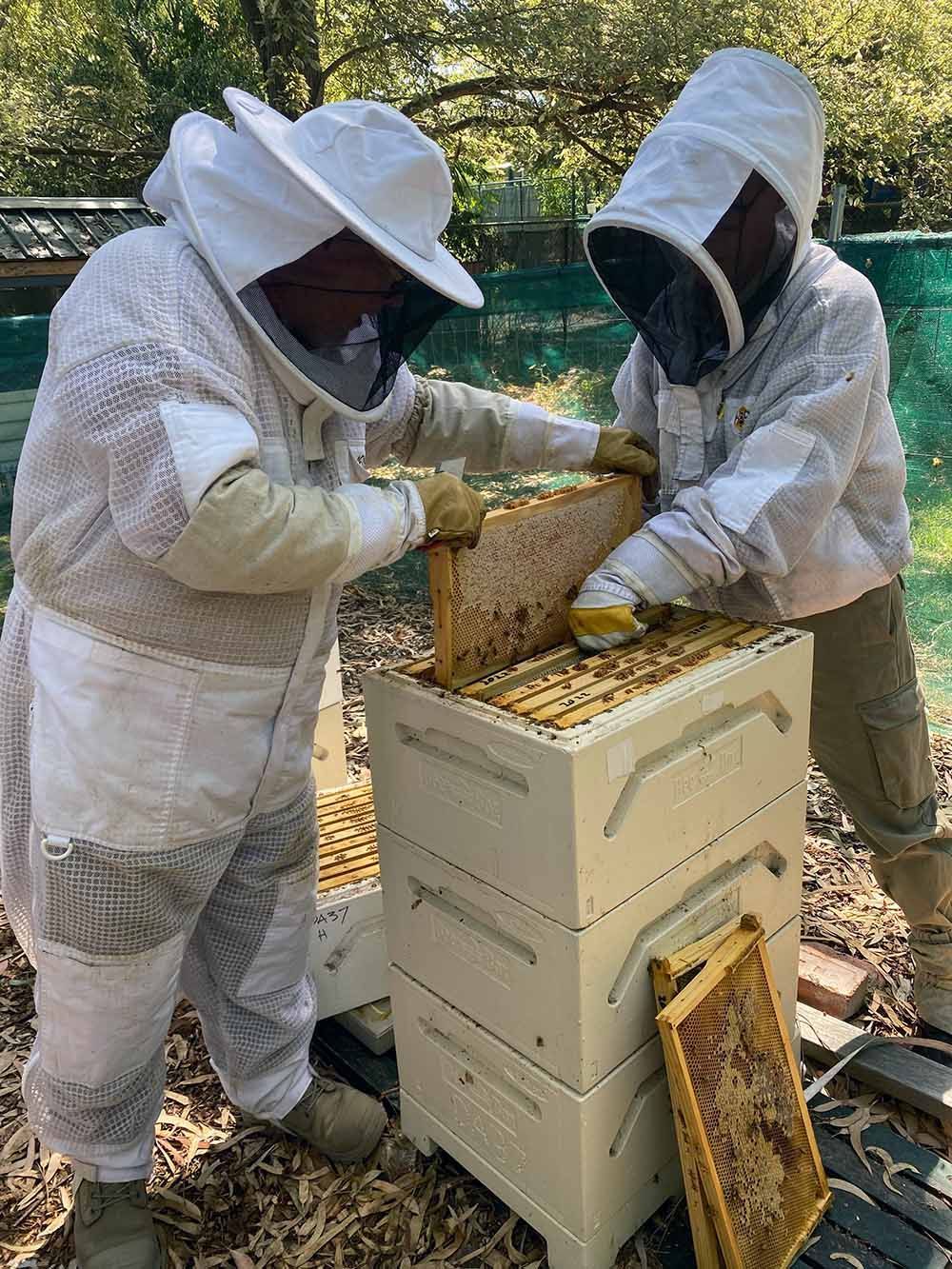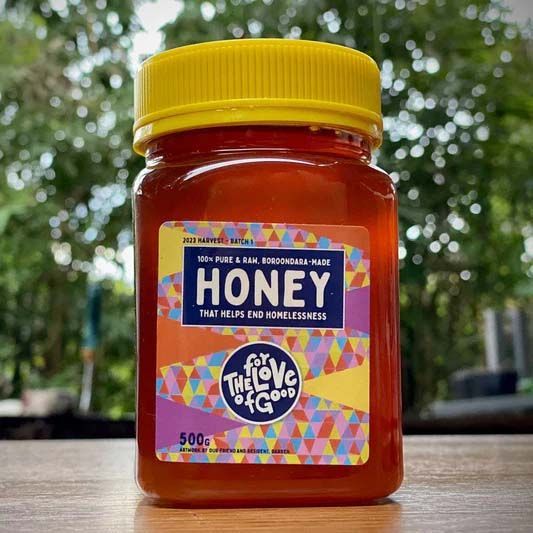Jayden Battey from Servants Community Housing tells us about a new tenant program that's bringing people together with honey and apples... for the love of good.
After COVID-19, our tenants were among the community’s most marginalised. With all on low incomes – and most with experiences of disability, trauma or acute psychiatric conditions – Melbourne’s 262 days of lockdown left them (like so many) feeling exhausted, isolated and worried about their health. The daily rituals of long walks to manage mental wellbeing were replaced by hours watching the daily case numbers press briefing, with some choosing to stay indoors completely for fear of the impact COVID could have on their already immunocompromised bodies.
A benefit of our unique rooming house model – which includes live-in house managers, shared meals and a relentless focus on building deep community roots – is, when the world goes into lockdown, you still have someone to talk to. Your neighbours are close, so the loneliness doesn’t hit quite as hard. It’s not for everyone but, for some, it’s the perfect fit.
As you rest or recover from whatever’s gone on before, you can sit, talk, eat, exercise and think about your life. You reflect on the past and, when you’ve felt safe and stable for long enough, you dream about the future. For a long time, one such dream had been to start an on-site beekeeping program at our inner-suburban Melbourne properties.
"Beekeeping has proven psychological benefits. As you tend the hives, you’re forced to move slowly and methodically."
Beekeeping has proven psychological benefits. As you tend the hives, you’re forced to move slowly and methodically because bees don’t like to be startled and people don’t like to get stung. You’re spending time in nature and preferably in the sun (bees don’t like the cold, either). Your actions are meditative, contemplative and you’re more present in the moment. As you relax into the bees’ hum and gently bring your attention to the hive, it’s easier to step away from anxious thoughts. You’re happier.
It makes perfect sense that, when the email came to say our application for funds from the Bank of Melbourne Foundation to get our beekeeping program going was successful, we were excited.
"Twenty-eight people already call our rooming house home – we’re just making room for a few thousand more!”
Plans were made, hives were purchased and land was prepared. A beekeeper, Tony, was hired. Excitement grew. Tenants worked together with staff and volunteers building hives, stringing frames and painting. As one tenant puts it, "Twenty-eight people already call our rooming house home – we’re just making room for a few thousand more!’.
A program was established, and it was working. Some residents jumped right in. Others looked on cautiously, tempted closer each time their neighbours donned the bee suits.
Around 18 months on, what’s emerged is a program greater than the sum of its parts. Not only have tenants harvested the first round of honey (over 90kg, an outstanding first harvest), but they’ve been involved at every step of the process. A partnership with Rotary has brought bee-friendly plants to our gardens. Working 'bees' with local high-school students have helped with bottling the honey. One resident, Darren, even designed the artwork for the packaging – a bright, triangular pattern that abstractly resembles a hive. The honey is sweet, golden and all the better for knowing how it got here.
But that wasn’t the end. A local volunteer, Stevie, was working at a regenerative apple farm when he joined our team of live-in house managers. Knowing the good that apple-picking had done for his own internal sense of peace, he invited tenants to join him. Two picking days and thousands of organic apples later, we partnered with a local manufacturer to launch a new pilot product into market: 3,000 cans of 100% organic, non-alcoholic, slightly sparkling apple juice. Trust us, it’s delicious.
We’ve packaged the products under the brand 'For the Love of Good'. It’s our way of saying what we’re all about: growing things that are good and necessary for us to survive. Things like a sustainable community, a deeper sense of connection and an attitude of learning... that and great-tasting products, which since our August launch have flown off shelves (after $10,000 worth of stock sold in just over four weeks, we jumped straight back into production!).
The entire project has been great for tenants and staff. Working together, there’s a greater sense of equity. Relationships are deepened. You can taste the fruit of your labour (with the juice, quite literally) and grow a sense of pride and satisfaction in what you’ve achieved. It’s easier for tenants to make new and sometimes unlikely friendships, address isolation, support good mental health and tackle barriers to employment. The entrepreneurial spirit catches you and, for tenants, as you start taking responsibility for creatures that depend on your care, you realise you’re more capable than you thought.
Andrew, a tenant at Servants’ Hamer property, has found this to be true. An advocate for the bees from the start, and a natural green thumb, he sees the bees as a great way to support his mental health.
"Once I got introduced to the bees, my curiosity took over my fear. The bees and the hives give me a sense of belonging and purpose."
"Once I got introduced to the bees," he says, "My curiosity took over my fear. The bees and the hives give me a sense of belonging and purpose." He also thinks the program can grow. "The possibilities, for me, are endless. I’m not just defined by a mental illness. I can partake and learn again. Win, win, win, win – and honey!"
For The Love of Good reminds us of what can easily be forgotten. Our sector is rapidly changing. The pressures and demands on staff are significant. We’re focused on growth and meeting huge increases in demand for housing that’s safe, stable and affordable. I know I’m not the only one who feels the highs and hardships of working in a sector that’s desperately needed but completely under-resourced. Housing – especially for those who’ve experienced substantial trauma, repeat incarceration or an acute mental illness – is hard.
"We can’t afford to forget the capacity each of our tenants has to shape the future too."

But, while it’s easy to be consumed by these challenges and to be driven to shape the future of what social housing can be, we can’t afford to forget the capacity each of our tenants has to shape the future too. Like all of us, social housing tenants are creative, diverse and experienced. They face big obstacles – but they also have something to contribute when we invite them in.
This project’s taken a lot of work, but the most rewarding outcome isn’t the work we’ve done, or even the products (great as they are). No. Far more powerful is the determined tenant who, while grieving the death of a friend and neighbour, had a reason to get up the next morning – to look after the bees. The long-term unemployed tenant who, after picking apples with friends from home, had the confidence to start a new job. The tenant with a psychiatric illness who looks at a product on the shelf of a local café and gets to say ‘I made that happen. That’s because of me’.
Although we work in housing, creating communities where people are afforded the respect, dignity, hope and opportunity they deserve is what drives us. If this program can teach us anything, it’s that alone we don’t have all the answers. But community is a two-way street, and when we partner together and give real opportunities for tenants to create, you never know what can happen.
All for the love of good.
Share This Article
Other articles you may like












